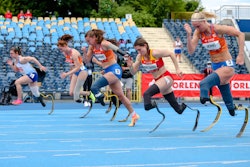A short time ago, I attended a small panel discussion on diversity in the professoriate. The panel of professors was a diverse one: a woman, a Hispanic, an African-American and a gay man. Those who had come to listen to and participate in the discussion were likewise diverse. However, as the conversation progressed and I heard the panel members’ stories of having to confront and overcome low expectations by superiors, perceptions of incompetence from colleagues and skepticism about the importance of their research, I began to feel at once a part and apart.
I felt a part because I found meaningful similarity between the burdens and difficulties of those on the panel and my own, as a Black male who was earning a Ph.D. and had already spent some time devoted to professional and graduate education. I could readily identify with stories of uneasiness, marginality and inconsequentiality in my chosen discipline, as well as the difficulty in cultivating relationships with White professors. My general experience as a Black male permitted this seeming solidarity of circumstance. But, although the panel spoke to my Black sensibility, its failure to address my identity as a person with a disability (muscular dystrophy) left me feeling apart.
Certainly, my Blackness has been an integral part of my identity repertoire as I have negotiated the sometimes troublesome terrain of higher education. It influences the alliances I cultivate, the hypotheses I probe and the strategies I employ to simply stay sane in the face of disconnection from a mainstream academic culture. But my Blackness is not always my predominant identity. Many times throughout my studies my disability has ascended and my Blackness has been rendered subsidiary. Thus, even during my attendance at predominantly Black institutions — supposed safe spaces that can act as a refuge from the torrent of otherness that can pelt Blacks at majority White institutions — otherness continued to rain down upon me. In short, as a disabled Black man, my disability can leave me drenched in otherness in a manner that my Blackness does not. Thus, for me, the dearth of discussions on ableism that students with disabilities can face during matriculation makes some diversity panels less diverse than their names might imply.
In my view, ableism should be viewed as a form of racism. Unfortunately, in many contexts intolerance that occurs against persons with disabilities remains more permissible or palatable than racism based on color. Certainly, a portrayal of a Black person as indolent or subservient simply by virtue of their race would result in a measurable public outcry, and justifiably so. Public caricatures of Blacks as uneducated, promiscuous or intellectually inferior, while enduring, increasingly offend the social and political sensibilities of most. However, the depiction of a person with a physical disability as unprofessional, helpless, ignorant or lazy is not seen as comparably offensive. In fact, outcry against those depictions is viewed by some as unjustified complaining, even by members of marginalized racial minority groups. This must change.
A broader and deeper understanding of racism and other biases is central to acknowledging linkages between varieties of discrimination, hopefully enhancing the possibility of conceptual and practical reconciliation. However, just as important, it can also help us to understand the particularities that inhere in these identities and how they influence the hurdles to be leapt in the race toward degree attainment.
Institutions of higher education, majority White or majority minority, should make a more concerted effort in considering the challenges faced by students with disabilities in the same ways that efforts have been made to include Blacks, Hispanics, Asians and American Indians. These efforts could focus on recruitment, accessibility, tutoring and mentoring. Universities should also offer courses in disability studies with an eye toward creating a disability studies major. To date, these majors are few and their proliferation would aid tremendously in educating both students and faculty. While we all recognize that institutional change can be glacial, students with disabilities compose a meaningful constituency with experiences that are indispensable to study, teaching and research at all levels, and efforts to facilitate their further inclusion in higher education should not wait.
— A. Rahman Ford is a Ph.D. candidate in the Department of Political Science at the University of Pennsylvania. He can be contacted via e-mail at [email protected]
© Copyright 2005 by DiverseEducation.com
![Screenshot 2024 06 05 141719[91541]](https://img.diverseeducation.com/files/base/diverse/all/image/2024/06/Screenshot_2024_06_05_141719_91541_.66613a2803b85.png?auto=format%2Ccompress&fit=crop&h=107&q=70&w=160)




![Screenshot 2024 06 05 141719[91541]](https://img.diverseeducation.com/files/base/diverse/all/image/2024/06/Screenshot_2024_06_05_141719_91541_.66613a2803b85.png?auto=format%2Ccompress&fit=crop&h=167&q=70&w=250)













